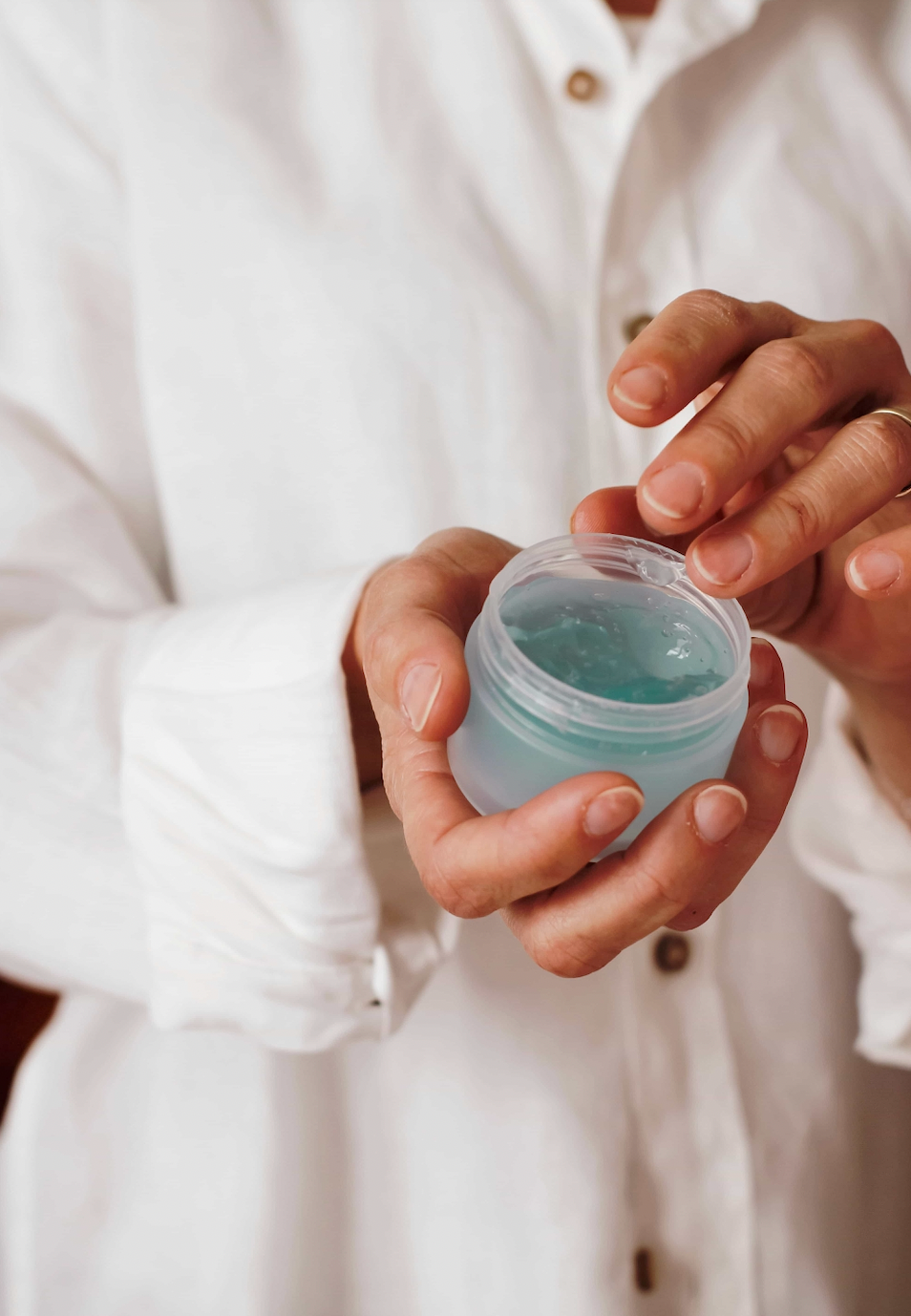Is Propylene Glycol Toxic? Here’s What to Know

Many health-conscious people are concerned about propylene glycol, a synthetic additive used in cosmetic, personal care, pharmaceutical, and food products.
These concerns are understandable. After all, propylene glycol is typically derived from fossil fuels, it's a glycol ester, and is a leading ingredient in some types of antifreeze.
It was also named “2018’s Allergen of the Year” by the American Contact Dermatitis Society.
However, current research suggests it is a safer additive compared to other glycol esters, like ethylene glycol, or other synthetic ingredients like fragrance chemicals, formaldehyde donors, or phosphates.
That doesn’t mean it can’t be harmful (especially to infants, pregnant women, and pets) or that we’d knowingly eat it or use it on our skin or in our products.
Read on to learn more about propylene glycol toxicity so you can make the best decisions for you and your family.
What is Propylene Glycol?
Propylene glycol is a glycol ester derived through several steps from propene, a by-product of fossil fuel production. It may also be derived from natural fermented sources, such as corn.
It is a synthetic liquid substance that’s colorless, odorless, slightly sweet, and has the consistency of syrupy water.
Propylene glycol is considered “Generally Recognized as Safe” (GRAS) by the FDA, low-toxicity, and is rated “3” by the Environmental Working Group which uses a toxicity rating system of “1” (least toxic) to “10” (most toxic).
Propylene glycol is often confused or associated with its glycol ester cousin ethylene glycol, which is highly toxic and also used in antifreeze products.
However, they are different chemicals with different toxicity levels.
For example, propylene glycol is used in non-toxic antifreeze, such as the type of antifreeze used in food processing machines or anywhere food is present and foods, and ethylene glycol is used in conventional antifreeze, like what you’d put in your car, and is not approved for use in foods.
What is Propylene Glycol Used For?
Propylene glycol is a versatile chemical with humectant (attracts and absorbs water), solvent, and antifreeze properties and is therefore used in a wide range of consumer and industrial products, including: 1, 2, 3
- As a food additive in baked goods, drinks, icings, salad dressings, cake mix, margarine, modified corn starch, and other processed foods
- Cosmetic and personal care products
- Deicing aircrafts and other machines
- Hair color and hair care products
- Non-toxic antifreeze
- Tobacco products
- Pharmaceuticals
- Smoke simulators
- Vaping products
- Coolants
- Paint
- Heat transfer and hydraulic fluids,
- Plasticizers
- To make polyesters
Regarding skin care and cosmetics, it’s important to note propylene glycol may be used in synthetic and “natural” or “non-toxic” makeup, facial cleansers, body washes, shampoos, and conditioners.
Natural or clean beauty brands may use propylene glycol extracted from corn ferments or petroleum-based propylene glycol. The only way to know for certain is to contact the company.
This is an important point as one of the biggest toxicity issues with propylene glycol is its potential to act as a skin irritant, which we’ll discuss more next.
Toxicity of Propylene Glycol
As previously mentioned, propylene glycol is considered low-toxicity, has GRAS status, and is rated “3” (“Fair”) by EWG’s Skin Deep.
For this reason, it’s allowed in food products.
However, as with most synthetic chemical additives, there are some safety concerns to be aware of.
1. Propylene glycol is a top skin irritant with up to approximately 3.5% of people having a skin allergy to propylene glycol resulting in dermatitis or a rash.
This is surprising given how common propylene glycol is in skin care, hair care, and cosmetic products. So, if you find a product (even a “natural” or “clean” brand) is giving you a rash, check the label for propylene glycol.
2. Propylene glycol can be toxic to pregnant women and babies due to lower levels of a certain enzyme (alcohol dehydrogenase) necessary to break down and excrete it.
Unfortunately, most pregnant women and new parents are not warned about the potential danger of eating foods or using personal care products containing propylene glycol.
3. Propylene glycol can be toxic to people with liver or kidney issues. This is due to the diminished function of these organs of filtration, which would normally excrete propylene glycol in a healthy individual. Unfortunately, ingredients like propylene glycol can build up in the blood when the kidneys and liver are not functioning optimally.
I (Marilee) personally had serious kidney issues before I overcame it using food as medicine, and no one ever told me to be careful about propylene glycol in food, cosmetics, or skincare products then or during my pregnancy!
4. Propylene glycol is toxic to pets, which is partly why we don’t recommend using products containing it around pets.
5. Propylene glycol increases the skin’s absorbency of other chemicals. Propylene’s humectant properties in skin care products can act as a double-edged sword. On the one hand, they help the skin better absorb moisturizers…and all the other chemicals that may be contained within that specific skin care product. If the product is clean, this may not be a big problem.
However, more often than not, skincare and cosmetic products are hotbeds for unregulated, toxic, and potentially toxic chemicals. Learn more in: Our Favorite Non-Toxic Personal Care Products.
So, is propylene glycol toxic, or not?
Compared to other petroleum products and glycol esters, its toxicity rating is low.
However, ultimately it depends on who is ingesting or absorbing it (human or pet), their health status, and how much they are ingesting.
The biggest risk for serious toxicity comes from the use of intravenous medications, like lorazepam (used in the treatment of anxiety and seizures), which have a higher concentration of propylene glycol, thereby increasing the risk of potential toxicity issues.
It is also worth noting that although current research shows low toxicity issues, there isn’t much modern long-term human research on the long-term effects of propylene glycol consumption.
As with all synthetic chemicals, caution should be exercised if you regularly use products, eat foods, or take medications, such as corticosteroids, with propylene glycol.
How to Spot Propylene Glycol on Labels
Propylene glycol is typically labeled as such.
However, it may also go by the following names:
- 1,2-propanediol
- 1,2-dihydroxypropane
- Methyl ethyl glycol
- Propanediol
- Trimethyl glycol
The most important places to search for propylene glycol on labels include:
- Cosmetics
- Personal care products
- Shampoo
- Conditioner
- Food products like dressings, icing, ice creams, cake mix, baked goods, margarine, sauces, modified cornstarch, and other processed foods which use it as an antifreeze, anti-caking agent, emulsifier, stabilizer, preservative, texturizer, and dough strengthener.
Propylene glycol is typically not used in cleaning products. However, ethylene glycol is and should be avoided due to its toxicity issues.
This is a perfect example of why it is so important to vet the foods and products that come into your home.
That doesn’t mean you have to cook everything from scratch or make your own skincare products either.
Thankfully, there are loads of wonderful brands that do not include propylene glycol, or other harmfulingredients in their food, cosmetic, or personal care products.
Related reads:
- How To Navigate Personal Care Products: Ingredients To Use & Avoid
- 7 Tips For Fast, Real Food, Healthy Home Cooking
Is Propylene Glycol Toxic to Pets?
Although less toxic than ethylene glycol, propylene glycol is still considered toxic to pets and ingestion can mimic symptoms of ethylene glycol toxicity.
Per the MSD Manual of Veterinary Medicine: “The oral LD50 of propylene glycol in dogs is ~9 mL/kg. In cats, ingestion of a diet containing 6%–12% propylene glycol can result in Heinz body formation and decreased RBC survival.”
All the more reason to avoid feeding pets processed foods meant for humans and to avoid propylene glycol-containing products whenever possible.
Environmental Impact of Propylene Glycol
Propylene glycol is not considered a hazardous or persistent environmental substance.
According to a review published in Reviews of Environmental Contamination and Toxicity entitled: “The distribution, fate, and effects of propylene glycol substances in the environment”, propylene glycol substances meet the OECD (The Organisation for Economic Co-operation and Development) definition of "readily biodegradable", and according to this definition are not expected to persist in either aquatic or terrestrial environments.” The exception is tetrapropylene glycol, which is not biodegradable.
It is believed to degrade in soil and water within a few days, but very little is known about its effects on air pollution when used as a deicer or in fog machines, for example.
Branch Basics – A MADE SAFE Certified Cleaning & Personal Care Alternative
Propylene glycol is just one of thousands of synthetic chemical ingredients used in foods, cosmetics, and personal care products.
Fortunately, its toxicity profile appears low based on current evidence.
However, as we mentioned previously, there has been very little research conducted on humans investigating the long-term effects of regular consumption or absorption, and its ability to create an easier path for the absorption of other chemicals is also concerning.
For these reasons, we recommend avoiding products with propylene glycol whenever possible.
The best ways to do this are:
- Look for propylene glycol-free cosmetic, skincare, and personal care products and those rated a “1” or “2” on EWG’s Skin Deep.
- Avoid processed foods likely to contain propylene glycol such as dressings, premade sauces, margarine, icing, cake mix, anything with modified corn starch, and conventional baked goods.
The great thing about food labels is, unlike cleaning and personal care products, companies are required to list ingredients like propylene glycol. So a quick glance at the label will indicate if a product contains it.
We’ve shared our favorite non-toxic personal care products in: Our Favorite Non-Toxic Personal Care Products.
We also invite you to check out Branch Basics propylene-glycol-free, MADE SAFE certified, and biodegradable Foaming Wash and luxurious and nourishing Gel Hand Soap for hands, body, hair, makeup removal and more.
Categories

Marilee Nelson
Marilee Nelson is an Environmental Toxins expert who has spent nearly 30 years advocating for the chemically-sensitive and chronically-ill. She is a Board Certified Nutritionist, Certified Bau-Biologist and Bau-Biology Inspector and specializes in Food As Medicine. She has helped thousands of families and individuals identify, heal and recover from toxic exposures and is on a mission to revolutionize the way American families view their health.






